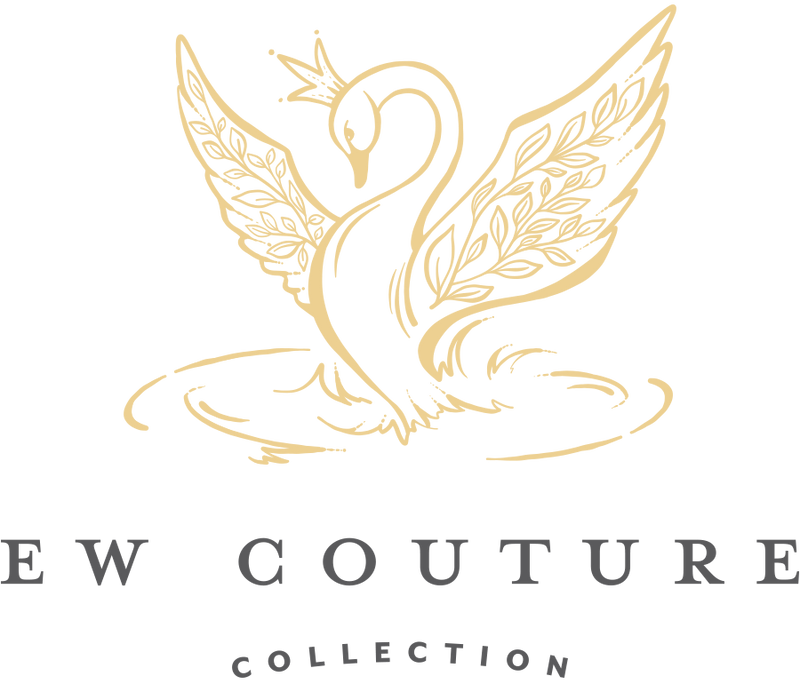12 tips for building a Photography Portfolio

* originally posted on the old ewcouture.com blog, on July 22, 2010
12 tips for building a Photography Portfolio (and reputation)
Things I know now that I wish I knew then, about portfolio building and setting a photography business up for success...
... While I knew a few of these things before I started my portfolio building season, I wish I didn't have to learn some the hard way.
Before I get started, let me say that by portfolio building I don't mean the time spent learning your camera, how it reads and captures the light, what is ISO, aperture, shutter speed, how they affect each other and what that means to you, or a way to make extra money to buy better equipment - you just can't call that portfolio building.
It doesn't matter if you are an established and seasoned photographer or you are just starting out your journey, and are still in the midst of your portfolio building season. Every one of you has words of wisdom, or painful stories to share about what they learned about portfolio building, and things they wish they've know before going through the process.
Here is my "Things I know now and I wish I had known before" type of guide, to building a photography portfolio and setting a photography business up for success.
1. Do not charge. Shoot for free.
It gives you the freedom to explore, to screw up, and it takes away the pressure that you need to deliver an end product that the model which is your client now (if you were charging) needs to be perfectly happy with.
You'll find a number of people that disagree with this, and we are all entitled to our opinions. But after all, at this point, with such a visual product like photography you have nothing (or not much) to show for your skills or talent. And that makes me think there is no one knocking on your door to hire you…
2. Take time to observe, analyze and learn from other professionals. And learn who you are as an artist.
Take the time to look at the work of other photographers several times a week. Observe, analyze - what works and why does it work? What do you like about a shot and why?
Get involved in forums where professional photographers are active. Seek criticism not praise. Don't undervalue your work - that's not what I am saying. But do keep an open mind. And do be ready to stand up for your work if you think people are stepping on it needlessly. Carry yourself professionally, be courteous and respectful and you'll be respected.
3. Explore, explore, explore!
Explore poses, explore with lighting during different times of the day, explore with children, seniors, families… DO NOT give up after photographing children or seniors once, if the shoot doesn't go well. It might've been a bad day. Give it another chance.
This is definitely the time to find out what you are best at, what makes you tick and what excites you.
4. Carry out YOUR vision in the images you take.
Ask people to model for you, don't ask/expect them to dictate the flow and the direction of the shoot - carry out your vision in the images you take. You'll be sought out for your style and your vision, eventually. If you are always trying to carry out your subject's vision and please every client you'll take on in the future… well, that's not possible. And you'll get burned out and tired, real quick, real soon.
5. Set clear boundaries and expectations for your models, ahead of time.
Let people know ahead of time that they will get an x number of images from your session together (adjust their expectations from the very beginning). You might take 250 or more or less shots (a number that, as far as I am concerned, does not need to be shared) but they need to know ahead of time they will not get all images you take during the time you spend together.
They shouldn't anyway. There is no need to spend nights editing, away from your family and kids and prep 175 images, in both b&w and color. Your future portrait clients will never get 175 images!! Remember, you don't get paid for this! They are getting free images that would cost them more money even at Walmart.
6. If you know you will be targeting 1 million dollar home owners, don't post ads for models on Craigslist.
Be intentional about who and how you are photographing for your portfolio. Might sound politically incorrect but you might want your subjects wearing tidy, cute outfits. Be choosy - it is your portfolio you're working on - and you'd better spend your time well. Especially when you are getting towards the end of your portfolio building, you want to photograph subjects in your target market.
If you know you want to photograph clients that shop at Nordstroms and most likely see the value and have the money to pay for the type of custom photography and experience you are aiming to provide, choose models that live that lifestyle. Their friends who live the same kind of lifestyle will see your work hanging above their friends' fireplace and might just ask for your business card.
7. Some say that you should start charging less, to begin with, once you get more buzz around your work.
I had and still have mixed feelings about that. Maybe it is because the thought of receiving money for my services at a point where I felt like I had a whole lot more to learn made me uncomfortable. Or maybe my gut feeling was and is right.
If your work is anywhere near pretty good or very good you are undercutting fellow colleagues in the industry and eventually will be undercutting yourself. Setting up this kind of example for other photographers that will come after you is not such a great idea. You'll think so when you're 2 - 3 years into your business.
Also if you're the good, cheap photographer in your area and you keep it up that way for a while, you're going to establish bad habits for your clients. More will go away when you eventually raise your prices to where they should be.
8. Start building value for your work and business.
Revise the number of files you give to your models, as you move through different stages of portfolio building. Make that number smaller as you get closer to the end of your portfolio building.
It is easier for people to come back to you and hire you once you start charging your full prices, knowing they are getting 25-30 images, instead of the 3 to 5 they got when you were doing portfolio building.
You want to start building the value for your work and making your possible future clients aware of it, in a really nice way. Especially if you are not charging you are offering an immense value to your models in exchange for their time.
In the most serious way, memories are forever and the older they'll get the more value they will gain.
9. Don't try to become a Jack of all trades, but rather the master of one.
On the same note with #4, Find your Voice! Personally I think it is one of the most important things during portfolio building.
Be an artist, be who you are, set yourself apart, get better at what you do best. Don't try to be a jack of all trades. Do explore all different types of photography, but become a master of one.
Think of the photographers you like and admire - I am sure that if you haven't done so you'll realize that they set themselves apart. I am sure Beth Jansen photographs other types of sessions besides children and newborns. Same with the Baby as Art team. But they are known and sought out and flown around the country for the one thing they do and continue to do best.
We always evolve and change, but try and find who you are and what you like best shooting and follow that. Once you figure out you like shooting kids - find yourself mainly kid models and do that. ...You discover you like weddings? Find photographers who would be willing to take you as a second shooter and do that.
10. Get signed releases from your portfolio building models.
Make sure that you have your models' permission (in writing as well - email, model release - if it is not in writing, it never happened) to post the images online (web/blog) and use them in print or online to market your business when the time comes. That is the point of portfolio building. People will be hiring you based on the work that they see you producing. Photography is visual. Makes sense, right?
If you can not use the images you take you might as well charge them full price for the session and the files or prints they are getting from you.
11. Research and figure out what it takes to open your business, research your desired target market, web providers, labs, pricing, products, logo design resources.
Research your target market/desired clientele and their needs (print vs. digital files packages). Start researching website providers, learn about their customer services and the features they offer, pricing , labs - get test prints.
Learn what kind of products you could be offering and how you could set yourself apart from other photographers in your area that cater to the same target market. Start thinking (really hard) about your business name. Research and learn what it takes to register your business, research logo designers.
Don't get a business name and a logo in the first month you start your portfolio building. Trust me! Not a wise thing (more on that in a future article)... Put a lot of serious thought in picking your business name and invest in a logo and look that you plan to stay with and represents best the style and feel of your work. A good designer will be able to create artwork that complements your images and doesn't bury and overwhelm them.
Releasing your logo/identity at the same time you release your website and start your business officially, makes sense. Your full pricing kicking in at the same time will make a whole lot of sense as well. You've officially established your business and there is no doubt about that.
(You could start out in business by offering a discount on your full prices for a select number of sessions, for a defined period of time.)
12. Post sneak peeks of your best portfolio building work to your blog.
Get a blog and post your BEST work (sneak peeks of your portfolio building sessions). There are many free/inexpensive options out there and really great, and paid ones that are worth the investment. Word spreads FAST, and before you know it you'll be getting inquires.
I believe that as a portfolio building photographer you will know when you are ready to start working professionally. Do it because you want to and because you are ready to. Not for any other reason - certainly not because your friends tell you that you should start a business and charge for your images. Make sure YOU are ready. Getting to the point where on a regular basis, you get the set number of great shots that you have figured out you want to offer to your clients (25 let's say - doesn't matter the shooting situation) I believe is one of the things that mark your being ready for the next step.




Leave a comment